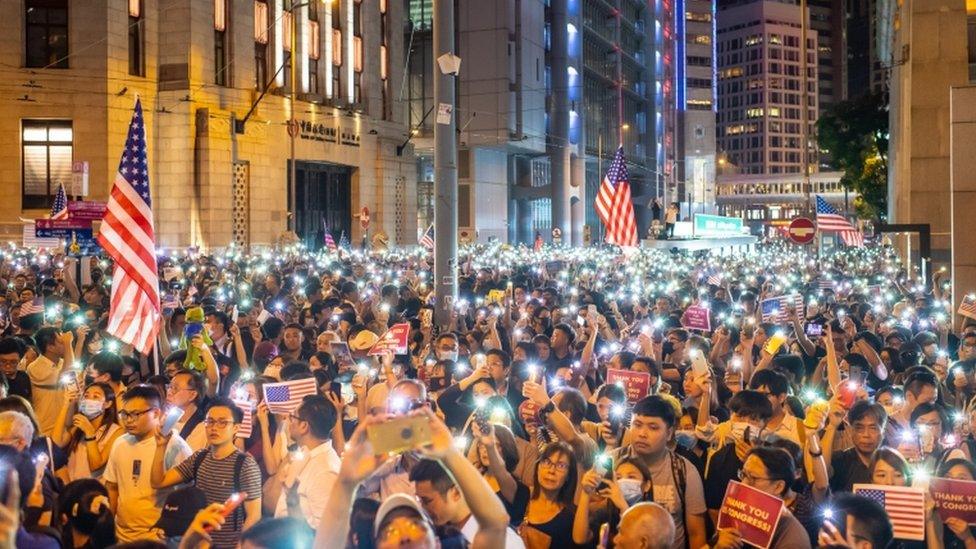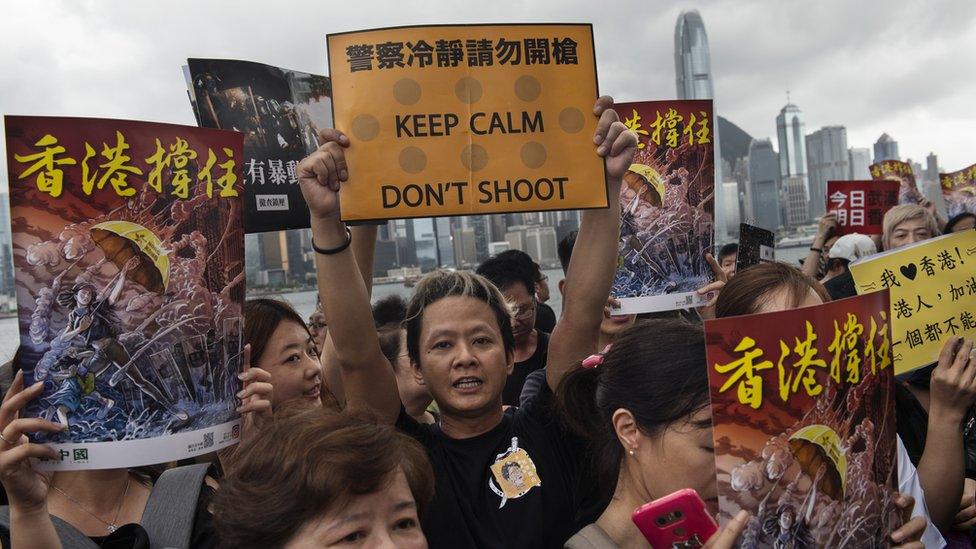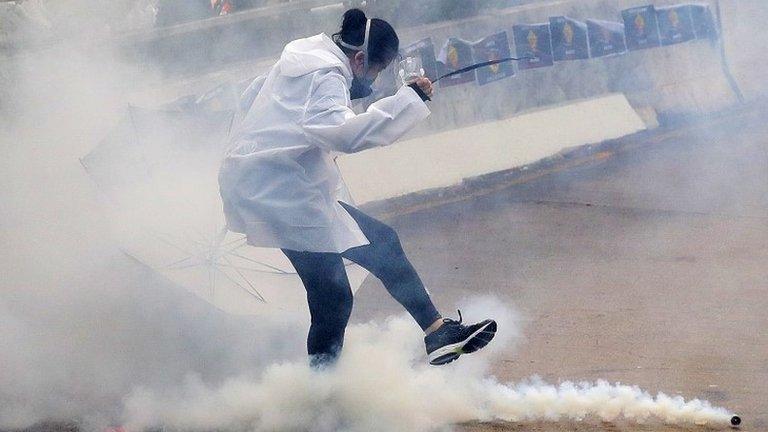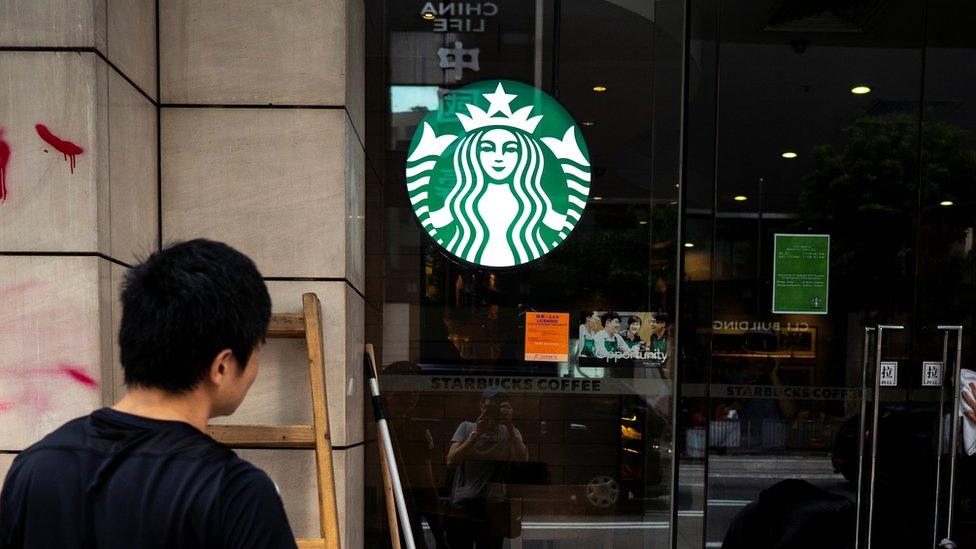Hong Kong protests: US lawmakers pass Human Rights and Democracy Act
- Published

Thousands of protesters rallied in Hong Kong on Monday in support of the Human Rights and Democracy Act
US lawmakers have supported Hong Kong protesters by passing a bill aimed at upholding human rights in the city.
The bill - which still needs to pass the upper house, the Senate - would mandate an annual review, to see whether Hong Kong had sufficient autonomy from the rest of China to justify its special trading status.
The lower chamber also approved stopping tear gas exports to Hong Kong.
On Monday, Hong Kong protesters took to the streets to support the US bill.
What's in the bill?
The bill passed by the House of Representatives - which was introduced in June as Hong Kong's protests took hold - says Hong Kong enjoys "unique treatment under US law", external.
"Hong Kong is part of China but has a largely separate legal and economic system," it says.
"The [annual review] shall assess whether China has eroded Hong Kong's civil liberties and rule of law as protected by Hong Kong's Basic Law."
Among other things, Hong Kong's special trading status means it is not affected by US sanctions or tariffs placed on the mainland.
The bill also says the US should allow Hong Kong residents to obtain US visas, even if they have been arrested for being part of non-violent protests.
And it says anyone "responsible for abducting and torturing people for exercising internationally-recognized human rights" should be barred from the US - and have sanctions imposed.
Was it passed easily?
The bill was supported by Republicans and Democrats and was passed by a "voice vote" in the House of Representatives, meaning a recorded vote was not needed.
"If America does not speak out for human rights in China because of commercial interest, then we lose all moral authority to speak out for human rights anyplace in the world," said house speaker Nancy Pelosi.
Ben Ray Lujan, a Democrat, said: "The house just sent a strong message to the people of Hong Kong: we stand with you in the fight for democracy and justice."
Protecting Hong Kong's young protesters: "Beat us, don't beat the kids"
What else did the House of Representatives approve?
The so-called "PROTECT Hong Kong Act" is designed to stop US exports of non-lethal crowd control weapons, such as tear gas and rubber bullets.
The bill says such items have been used "unnecessarily and disproportionately", external by Hong Kong police.
It also needs to be approved by the Senate.
Lawmakers also approved a non-binding resolution recognising Hong Kong's relationship to the United States, which condemns Beijing's "interference".
How did China react?
After the bill was passed, Beijing called for Washington to "stop meddling".
"We express our strong indignation and firm opposition to the US House of Representatives' insistence on passing the so-called 'Hong Kong Human Rights and Democracy Act'," said foreign ministry spokesman Geng Shuang.
China's relationship with the United States would be damaged should the bill become law, the spokesman added.
What is the situation in Hong Kong?
Hong Kong's protests started in June against a proposed law to allow extradition to mainland China but it has since transformed into a larger pro-democracy movement.
The protests have also seen increasingly violent clashes, with police being attacked, and officers firing live bullets.
Protesters have thrown petrol bombs and attacked businesses seen as being pro-Beijing.
The protesters, meanwhile, have accused police of brutality.
- Published28 November 2019

- Published14 October 2019

- Published11 October 2019
